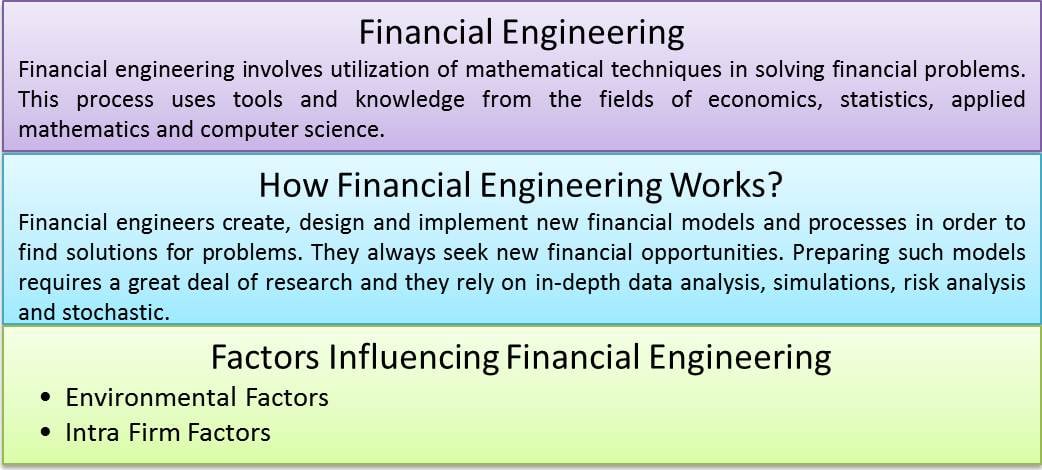Meaning Of Financial Engineering
Financial engineering involves the utilization of mathematical techniques in solving financial problems. This process uses tools and knowledge from the fields of economics, statistics, applied mathematics, and computer science. These tools assist in solving the prevailing financial issues and help in devising innovative financial products. Financial engineering is also known as quantitative analysis. Basically, it is a corporate restructuring strategy. Investment banks, commercial banks, and insurance agencies use this technique.
After knowing the meaning of financial engineering, we’ll see how it works.
How does Financial Engineering Work?

Financial engineers create, design, and implement new financial models and processes to find solutions for problems. They always seek new financial opportunities. Preparing such models requires a great deal of research, and they rely on in-depth data analysis, simulations, risk analysis, and stochastics. Financial engineers possess knowledge in fields such as economics, statistics, and corporate finance. These engineers work in banking, consulting agencies, securities, and financial management.
After knowing about the concept of financial engineering, we will see the factors influencing it.
Factors Influencing Financial Engineering
The following are the factors that influence the growth process of financial engineering:
Environmental Factors
These are the factors that exist in the external environment. Environmental factors have a direct impact on the firm.
These factors are not controllable. Political, Economic, Social, and Technological (PEST) analysis can be conducted to determine these factors and their impact on the business. Common environmental factors are technological advancements, new inventions, competitiveness, and political and economic changes.
Intra Firm Factors
The firm controls these factors and directly affects the financial engineering process. Examples of intra-firm factors are accounting policies, risk aversion, agency costs, and liquidity needs.
Conclusion
Financial engineering can benefit organizations in finding solutions to various problems such as risk management, scenario simulation, and new product development. However, owing to the ever-increasing financial innovation, there is a perpetual demand for highly skilled financial engineers.

